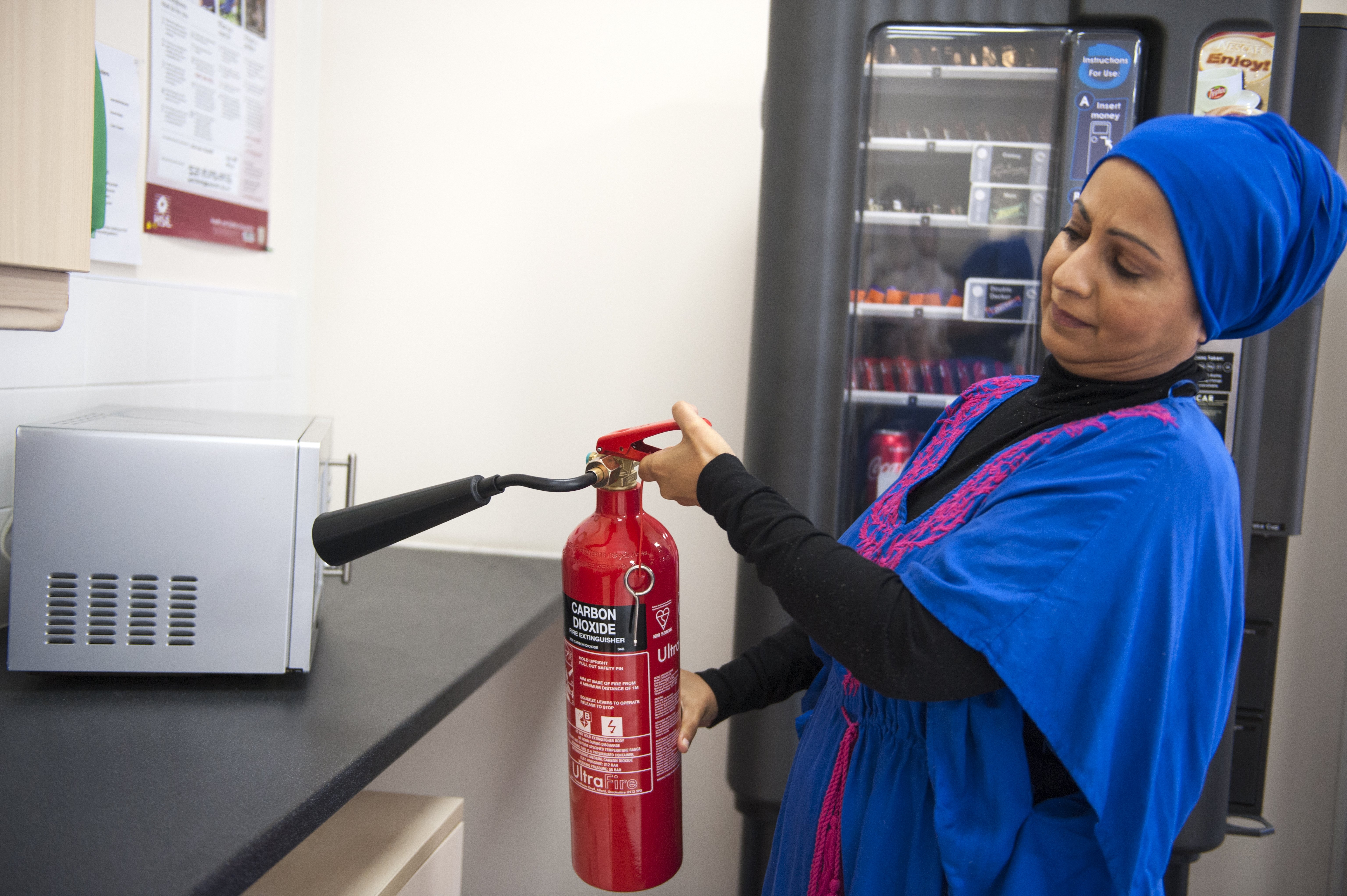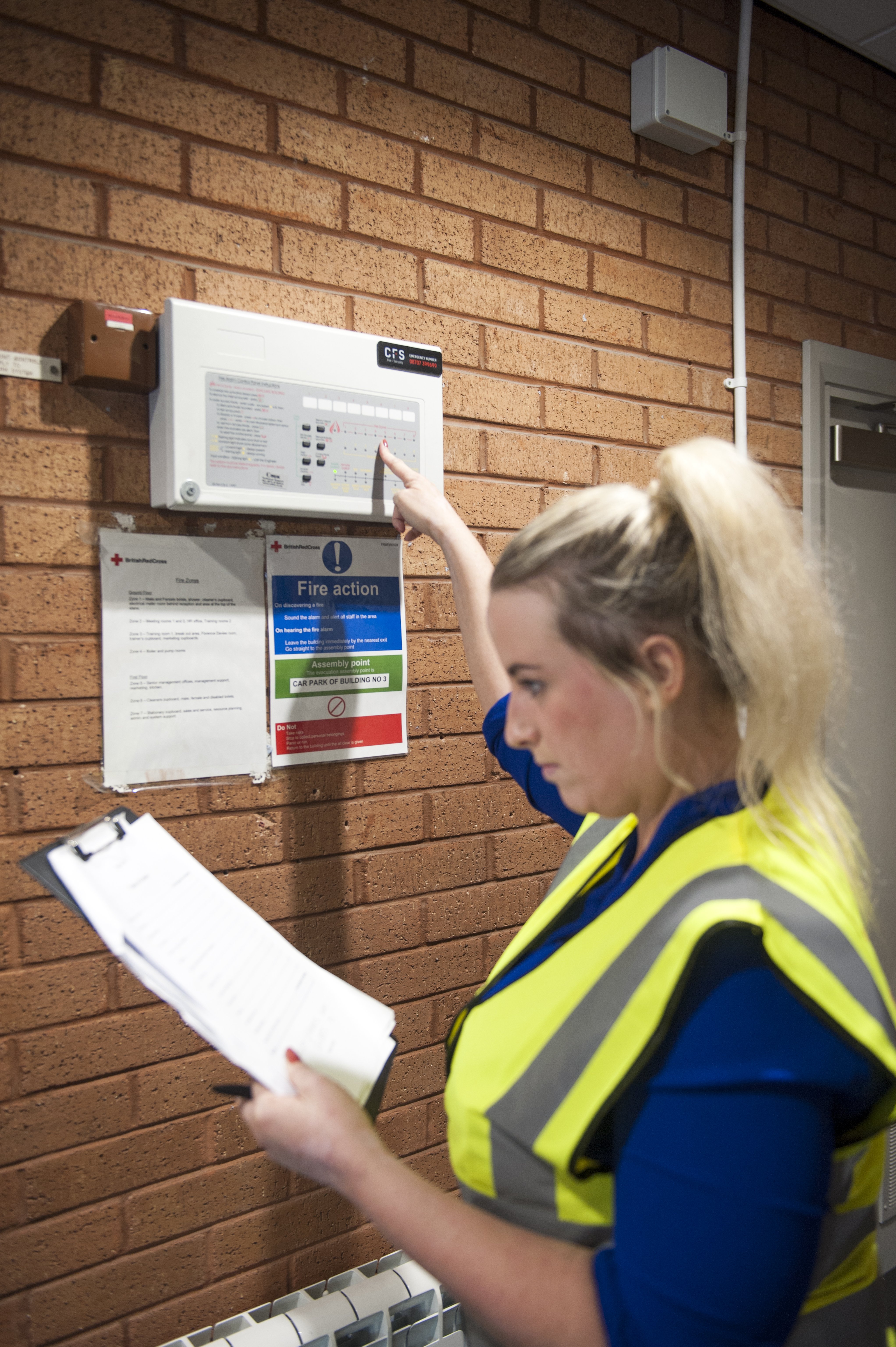Ensuring your organisation has the confidence to help in an emergency is important in any workplace. This blog will help give you an overview of the role of a fire marshal or fire warden and how they help both day to day and in an emergency.
What is a fire marshal?
A fire marshal or fire warden (similar terms referring to the same role) is responsible for day-to-day fire safety within a building or premises and plays a critical role in ensuring the safety of occupants and minimising the risk of fires.
Fire marshal responsibilities may vary depending on the organisation and industry. However, designated fire marshals who have completed a fire marshal training course can promote fire safety, protect lives, and assist with emergency preparedness and response in relation to fires.
It’s worth noting this is potentially a demanding role for an individual; fire marshals may be required to evacuate the workforce, operate fire safety equipment, and conduct regular fire risk assessments.
Role and responsibility of a fire marshal
Fire marshals must carry out routine responsibilities and regular checks of the premises in line with fire safety regulations. This helps to ensure that the risk and impact from fire is kept to a minimum.
A fire marshal’s role will vary in each workplace, so it’s important to assess your organisation’s needs and train your fire marshals accordingly.
Fire marshals are likely to be engaging in day-to-day work activity if an emergency takes place. They might be sitting at their office desk, waiting on tables in a restaurant, or moving heavy objects in a warehouse. They need to be able to respond quickly and efficiently to the incident, in line with their fire marshal training and fire safety regulations.
Learn more about fire marshal responsibilities and fire safety.
Fire safety procedures in the workplace
Responsibilities of fire marshals may be different between one workplace and another, and tasks may be split up between team of fire marshals in the workplace. But routine fire marshal responsibilities may include:
Fire doors and escape routes
- Ensure fire doors are shut (and not locked) at all times and surrounding areas cleared of clutter.
- Ensure all fire exit doors open easily without the use of a key and are not obstructed on the outside.
- Ensure external security shutters/gates are not blocking the means of escape.
- Ensure all escape routes are free from obstruction.
- Ensure that fire/smoke doors are not wedged open.
Signage
- Ensure fire exit signs are fit for purpose, are in good condition, and are visible and illuminated.
- Check the correct signage placards are next to extinguishers and firefighting equipment.
- Ensure accurate floor plans and action notices are clearly displayed where appropriate.
- Oxygen/gas cylinders and some chemicals may also require safety labelling/signage to indicate they may pose a risk e.g., flammable.
Equipment
- Ensure firefighting equipment is stored correctly and is easily accessible.
- Check fire extinguishers are in date and sealed with the locking pin in place and the pressure gauge is within the green area. They should be on brackets or special stands and not removed to another location.
- Check fire blankets are in date and stored correctly.
- Ensure all fire systems and equipment are regularly maintained and checked e.g., alarms, extinguishers, electrical circuits, hose reels etc.
- Ensure smoke detectors and sprinkler systems are not blocked.
- Ensure emergency lighting is maintained and checked.
Combustibles
- Ensure the outside of the building is checked for anything combustible close to the building as this could be used for arson.
- Check combustible materials are not stored in a location that could ignite them, or in large quantities, which may make the fire spread or become unmanageable quickly – especially wheelie bins used for waste.
Reporting
- Ensure fire risk assessments have been carried out and discrepancies relating to fire safety are reported to management.
- Ensure fire safety records (fire safety and maintenance log) are completed to record when alarms have been tested, fire drills have been completed, and any maintenance or training that has taken place.
New hazards
- Ensure they are aware of any new workplace fire hazards e.g., contractors working within an area.
Why is it important to train fire marshals?
With hybrid working now a common feature in many organisations across the UK, it’s still important to understand fire marshal responsibilities and have trained fire marshals available and equipped whenever employees are on premises.
Usually, a fire marshal training certificate is valid for three years. If you work in a high-risk environment such as manufacturing facilities, vehicle repair sites or warehouses, fire marshals may need to train more regularly.
It’s vital in line with the Fire Safety Order that individuals update their fire marshal qualification to stay up to date with the latest knowledge, regulations, and best practices in fire safety and prevention. The best way to do this is by training with an Institution of Fire Engineers (IFE)-accredited provider such as British Red Cross Training.
Topics: Health & Safety, Fire Marshal


